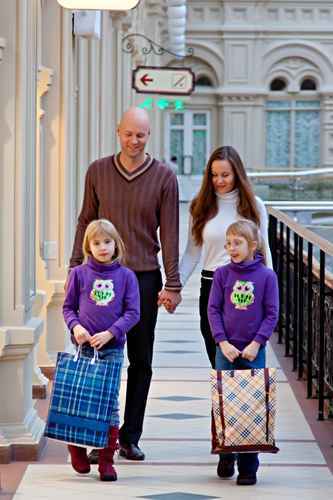Here’s how most of us who are thinking about leaving our marriage imagine divorce will be like: We’ve had it with our partner (or perhaps he’s decided the same about us and casts us aside, but let’s just say we’re the ones who want out and let’s say we’re the woman because women ask for divorce two-thirds of the time). We think — finally, freedom!
Now we no longer have to feel the brunt of his anger and criticism; we can stop nagging about how he doesn’t pull his weight around the house; we won’t have to fake being in the mood when we’re not, we get to do and eat and watch whatever we want whenever we want to, and we don’t have to bicker anymore over whose turn it is to bathe the kids or whether they can have ice cream for dessert if they didn’t finish everything on their dinner plate.
Maybe that was what divorce was like back in the day when moms were almost always awarded full custody and dads could “visit” their kids. But those days are rapidly disappearing.
Most divorced people learn relatively quickly that although they’re no longer married and living together, they still have to deal with their spouse in their continuing role as their kids’ mom or dad. He or she still has a say, and can nix our plans to move away for a new job or a new love. Divorce is no longer the end of a relationship; it’s a “restructuring of a continuing relationship.”
Which has made some of us as miserable divorced as we were in our marriage.
“People in unhappy marriages do not look to divorce as a way to restructure the relationship with their partners. They look to divorce to end that relationships, to set them free to start a new life, perhaps to move to a new location and to form new relationships,” says University of Sydney law professor Patrick Parkinson in Family Law and the Indissolubility of Parenthood.
But, not if you have kids. As Parkinson notes, “The experience of the last forty years has shown that whereas marriage may be freely dissoluble, parenthood is not.”
So, rather than make divorce harder (or marriage harder), why not rethink parenting? Why not restructure the “continuing relationship”?
That’s what Susan Pease Gadoua and I are suggesting in The New I Do: Reshaping Marriage for Skeptics, Realists and Rebels. And that’s what Rachel Hope has done.
I admit that when I first heard about the single mom of two and how she became a mother, I had a hard time wrapping my head around her choices. The LA real estate developer and author of Family By Choice: Platonic Partnered Parenting, realized when she was 18 that she didn’t want to spend a lot of time looking for a soul mate; she just wanted to have a kid. So she and a good friend, who wanted a child as well, had a son together and co-parented him until adulthood. It worked so well, she had another child many years later with another friend. Now she’s looking to have another.
This is what same-sex couples, who have been fighting for the right to marry, have been doing all along.
In recent years, we’ve seen the rise of websites like Modamily, which connect singles who want to have a child together but that’s it; they are not necessarily lovers or even housemates. They just co-parent.
What works well? Hope’s children had two loving, supportive, stable parents and they were raised in a home with no conflict. And as study after study has confirmed, parental conflict — whether in an intact home or divorced home — is damaging to children.
OK, Hope is unmarried — happily. Can you offer the same love, support and stability to children and be married? Yes — a Parenting Marriage is a model we offer in The New I Do. What does that mean? It means you marry the best person to help you co-parent your children — not your soul mate, not The One, not the person who is going to complete you. You marry someone with the same values and goals about parenting and children, and who is as hand-on dedicated to being the best parent he or she can be. If you want to give your children the love, support and stability they need to thrive, marrying for love is not the way to go. All you have to do is look at the high divorce rate to know that’s true.
Children do not need their parents to love each other. But they absolutely need their parents to not fight with each other. As child psychologist Naeema Jiwani, says, “Compared with conventional parenting where the mother and father have to constantly be ‘in love’ in front of their child, co-parenting doesn’t include the ‘strain’ of marriage.'”
And, as we point out in our book, you can restructure the marriage you are already into a Parenting Marriage. We’ve spoken to couples who have done that, and done it well.
Maybe your head is spinning the way mine was when I first heard about Hope. That’s OK; it’s hard to challenge what has gone unquestioned for centuries (in the Western world, anyway). But please reflect on your own experience of parenting, and those of friends and family, and ask yourself would a co-parenting arrangement have been a healthier, happier way to go.

















